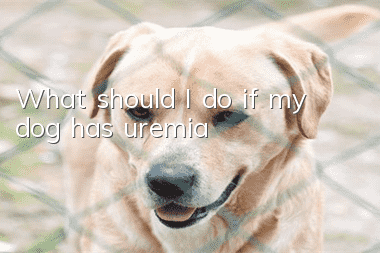5 minutes to quickly understand the pros and cons of pet neutering

Owners sometimes face this question: When their furry child grows up, becomes an adult, and becomes sexually mature, should they take it to be neutered?
Whether or not to sterilize fur babies has always been a controversial topic. People who do not agree with sterilization believe that pets have the right to reproduce and reproduce, and humans should not deprive them of it; those who agree with sterilization believe that this is for the health of their pets and to avoid causing certain diseases.
There are pros and cons to sterilization and non-sterilization. Let’s take a look at Kager’s analysis and suggestions. Maybe it will be of some help to you~
What is sterilization surgery?
First, let’s understand the sterilization operation: The sterilization operation is to sterilize the pet through surgery. After the sterilization, the pet will not have the ability to have children.
The more popular explanation is that during pet sterilization surgery, veterinarians will remove the uterus and ovaries for female animals, and remove the testicles for male animals. This is a routine surgery and will be performed under general anesthesia.
This article will focus on the topic of neutering dogs and cats.
What are the benefits of pet neutering?
01 After sterilization, the personality will be gentler
Cats and dogs in estrus are often irritable. After neutering, their habits such as wandering, fighting, peeing, and howling can be reduced or completely changed. They will become more willing to be with people, have a closer relationship with their owners, and be docile. and easy to train.
02 Avoid the occurrence of certain diseases
For female fur babies, if the estrus period is not satisfied for a long time, it is likely to cause pyometra, breast tumors, ovarian tumors and other reproductive system diseases.
When males are in estrus, they are prone to urinary tract infections and urinary system diseases. After neutering surgery, the chance of your furry baby suffering from these diseases can be greatly reduced. 03 Eliminate the worries of menstrual cycle
For female fur babies, they will also have the symptom of "bleeding" during their menstrual period (estrus). Female cats and dogs will go into estrus twice a year, each lasting about 15 days.
04 Avoid a series of troubles caused by estrus
During the estrus period, fur babies will show many abnormal behaviors, such as being more aggressive; male cats and dogs will like to pee everywhere. This is their way of attracting the opposite sex with their smell.
Male cats and dogs will leave homeIf you run away to find a mate, you may easily get lost, run into danger, or harm innocent people.
What are the effects of pet sterilization?
01 Diseases that may occur after surgery
Neutering is actually the removal of a pet’s reproductive system. Reproductive hormones affect the whole body, so sterilization may affect their physiological development or cause some diseases, such as complications - wound inflammation, gastrointestinal discomfort, etc. However, if it is done professionally and care is taken, the chance of illness is very small.
02 Sterilization will cause obesity
After neutering, the metabolism of fur babies slows down. At the same time, some pet owners do not pay attention to controlling the amount of food, which can cause them to become obese. It may also cause obesity-related diseases, including heart disease, diabetes, arthritis, etc.
Therefore, after sterilization, more attention should be paid to the daily exercise and reasonable diet of the fur baby.
03Surgical risks
Like other surgeries, sterilization surgery has risks. In addition to potential physical problems of the furry child, there are also risks such as incomplete sterilization, anesthetic allergy, and surgical infection. Although professional hospitals and doctors will do their due diligence, it is difficult to absolutely avoid them.
Postoperative rehabilitation and care
If you decide to neuter your fur baby, it is recommended to choose a regular pet hospital. The owner needs to do preliminary preparation and postoperative care. These two items will directly affect the effect of the operation and must be paid attention to.
Preliminary preparation ▼ 01. Preventive health care: Pet sterilization surgery should be performed at least after the first vaccination, preferably two weeks after all vaccinations are completed. Ensure complete immunity before surgery, which can effectively reduce disease infection and contagion.
02. Preoperative physical examination: Veterinarians usually recommend a preoperative physical examination of the pet to assess the pet's individual health status, determine the best date for surgery, and formulate a specific surgical plan for special circumstances.
03. Hungry period: Under normal circumstances, feeding the fur baby should be stopped 8 hours before the operation, and no water should be allowed 2 hours before the operation. If the doctor has special instructions based on the specific situation, please follow the doctor's instructions.
Postoperative care ▼ 01. Diet: After the operation, the pet cannot be allowed to eat directly. Before complete recovery from anesthesia, eager to eat may cause gastrointestinal reactions. The general recommendation is to wait 4-6 hours after surgery, before the pet wakes up.Provide food for pets.
Because appetite is generally poor after surgery, in terms of postoperative diet, it is recommended to feed your fur baby liquid food or wet food to supplement the required nutrients in a timely manner.
02. Wound care:
After surgery, you must pay attention to wearing a collar on your fur baby to prevent it from licking the wound and causing infection. You also need to pay attention to keeping the wound dry. If bleeding and pus are found, the owner should take it to the hospital for treatment in time.
03. The last and most important point:
Keep in touch with your doctor. The pet owner should carefully observe the postoperative condition of the fur baby. If there are any questions, be sure to contact the doctor in time.
There are pros and cons to neutering or not neutering your furry. Whether to sterilize or not depends on the owner’s judgment. It is recommended that pet owners make a decision based on factors such as the environmental conditions of the pet, the individual situation of the furry, the status of medical services, the local pet-raising culture, and the doctor’s advice. Decide.
- Why do dogs like to sleep under the bed?
- What should I do if my puppy keeps barking in the cage?
- How to train a German Shepherd? The best time to train a German Shepherd!
- Will dogs with gastrointestinal problems have bad breath?
- What should I do if my French Bulldog eats too much and has diarrhea?
- How many meals does Harry the dog eat a day?
- Can dogs eat oranges?
- What happened when the dog suddenly bit its owner?
- How to remove dander on an Australian Shepherd?
- How should Bichon Frize puppies be trained? Daily training for Bichon Frize puppies!



